Check out some books by your tutor Fiona Veitch Smith … (click on the book covers to find out more)
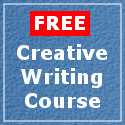 Hello everyone, welcome to the first session of our free online creative writing course. Over the next eight sessions we will be looking at different aspects of creative writing and trying our hand at various forms. I’d strongly encourage you to have a go at the exercises along the way, and please feel free to leave comments or ask questions at the end. If you have arrived on this page without first reading the home page and frequently asked questions page (on tab above) please go back and do so now. If you have read them, enjoy the course!
Hello everyone, welcome to the first session of our free online creative writing course. Over the next eight sessions we will be looking at different aspects of creative writing and trying our hand at various forms. I’d strongly encourage you to have a go at the exercises along the way, and please feel free to leave comments or ask questions at the end. If you have arrived on this page without first reading the home page and frequently asked questions page (on tab above) please go back and do so now. If you have read them, enjoy the course!
Creativity and Art
What is creativity? The Collins dictionary defines it as ‘the ability to cause something to exist’. Without getting into too much of an existential discussion, I would say that with every thought that is expressed, something has been created. It was Descartes who said: ‘I think, therefore I am’; well I would add, ‘I think, therefore I create’ (do you feel a God complex coming on?). But how do we express our thoughts? Sometimes we do it verbally, other times by body language and still again through what is loosely termed ‘art’.
Art takes place when a thought is expressed and fixed in a way that other people may experience it on an aesthetic level – through music, writing, painting, sculpture, choreography and so on. Many artists say that their best work takes place when they ‘by-pass’ the thought and simply express the feeling. This may be true, but for writers, who use a verbal medium, a feeling must first be converted into a thought before it can be put into words. Don’t over analyse the thought before you express it, as this way you can ‘channel’ the purest interpretation of the feeling, but some cognitive process needs to take place. Some writers prefer to mull over a thought and give it form before they put pen to paper – I’m one of them – but it’s good practice to try and switch off the ‘editor’ at least for the first draft. First response trigger exercises are useful in this regard and can release some unexpected words and images.
Exercise 1:
Write down your first response to these words or phrases:
- Blue ball
- And that’s when the sadness came
- Coffee
The first task of a good writer is to convert feelings into thoughts and then into words. This is the raw material that can then be converted into something more permanent. Some writers refuse to toy with their first drafts, believing their creativity will be diluted; I disagree. Allowing your critical mind to improve a piece of writing is where the craftsman meets the artist. Something produced only by the former will lack soul and something by the latter will lack form. Good writing is a combination of art and craft.
For public consumption
Art, of course, is highly subjective and one woman’s masterpiece is another woman’s unmade bed. We all have the ability to create, but whether or not our creation is ‘art’ must be left to the eye or ear of the beholder.
In this session we will look at how you can craft those creative thoughts into creative writing to share with other people. And that’s what sets ‘public’ writing apart from ‘private’ scribblings – there’s a perceived readership in mind. When I ramble on in my journal, I am the only one who will read it (hopefully!) so my only concern is getting my thoughts down on paper. The moment I want someone else to read it I begin to consider ways to improve the presentation and craft it into something more aesthetically pleasing. I consider which words may sound more colourful, whether or not my sentence structure is grammatically correct, whether I’m using evocative imagery, and so on.
Story, feeling or image?
What is it about those creative thoughts that you think might be of interest to other people? Do they speak of an eternal truth or a common experience? Do they make you laugh or cry? Do they suggest a story that will entertain or a poem that captures a moment that must be shared?
Exercise 2: In 50 words or less write down why you want to write then list three creative thoughts that you’ve had lately (each 10 words or less). These may be an image, a musing, a ‘truth’, a story, or so on. If you haven’t had any, take yourself for a walk and look around; what grabs your imagination? Browse through a newspaper or a magazine; do any stories or pictures catch your attention? Think back over your day; did anything funny, charming, shocking or unusual happen to you or someone you know?
Poetry or prose?
Some people are more suited to writing poetry than prose and some people do well at both. Although we won’t be discussing it in this course, other people are more suited to script. I’m one of them. I’ve had relative success as a prose writer and in fact have managed to earn a living from it, but it’s taken years of hard work to get to this point. I recently branched out into scriptwriting and found that I had much more of a natural ability. (If you’re interested in finding out more about scriptwriting, check out getting started in playwrighting). You may find that you’ve been trying to make it as a poet when actually you’re more suited to prose. Now I don’t want to pigeonhole anyone, but ask yourself the following questions:
- Are you more attracted to films than stills?
- Do you enjoy telling people ‘stories’ from your life?
- Do you prefer to read stories or poems?
If yes, to these, then you may be more suited to prose than poetry. If no, then the opposite may be true. If it’s ‘sometimes yes, sometimes no’ then perhaps you are suited to both. We shall be looking at how to write poems in more detail in session 7, but suffice to say, a poem is like a snapshot of a moment. If you can’t rest until you know what happened before and after, then prose may be your genre.
Exercise 3: Take one of the three creative thoughts you wrote down in Exercise 2, then list 20 separate words that communicate or describe that thought. Do not, at this stage, link the words into sentences. Once you have your 20 words use them in a poem of 16 lines or less. Then, take the same 20 words and work them into a short story of under 300 words. Which exercise came more easily? Which form has best communicated your creative thought?
Further Resources:
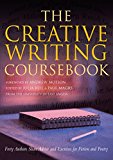
There are some excellent resources out there for creative writers. To get quick ‘starter’ images when your own well is dry I recommend The Writer’s Block by Jason Rekulak. I’m currently working through The Creative Writing Coursebook by Julia Bell and Paul Magrs and finding it very useful.
The next creative writing course session is how to write a short story. But before you move on to that, please feel free to leave a comment or ask a question in the box below.
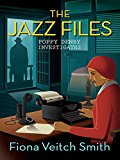
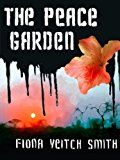
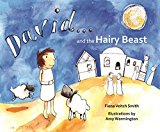
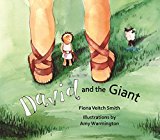
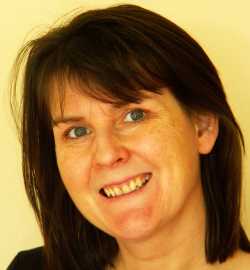 Welcome to The Crafty Writer's free online creative writing course, presented by Fiona Veitch Smith, a freelance journalist, editor, author, playwright, screenwriter and writing teacher. I hope that you'll see a dramatic improvement in the quality of your writing as you work through this course.
Welcome to The Crafty Writer's free online creative writing course, presented by Fiona Veitch Smith, a freelance journalist, editor, author, playwright, screenwriter and writing teacher. I hope that you'll see a dramatic improvement in the quality of your writing as you work through this course.
hello let´start please
Hello Maria, you can just get started yourself. Read the info on the website to tell you how.
Very useful
I had a harder time creating the poem than i did the story. The story i had written before hand and it seemed pretty solid. when i wronte the poem the story change completly. I dont know if it was because of the music i was listening to or because it was harder to make it fit as a poem but it took a different turn completely. A sadder turn, i almost feel like poetry just needs to be sad.
Jenny was a young and pregnant wife,
who dreamed of happiness, and love in life.
She wanted her house to be filled with children,
running around with nannies,
and spraying the gardeners with hoses.
But the man who lived in the tree,
scared the young mother to be.
So in the night among the fog,
she walked to the river edge,
where she drowed her babies to their death.
No more noises
no more fears,
no more children drowing in tears.
Thank you for this free course. I’ve only just started and it has been a long time since I’ve been inspired to write so much in one sitting.
Hi Fiona, Just writing to say I have completed the first “lesson” and enjoyed it. I love to write and was looking for something to spark ideas and improve my ability. Thanks for offering this course!
The exercises really helped. I have had writers block for 13 years and I’m finally at the point where I’m ready to write again. I decided to start from the beginning since I am so rusty. I am a better short story writer than a poem writer. I’m glad I decided to take your course. Thank you for having it available!
Interesting process. I found it easier breaking it down the way the course spelled it out for me to do. I’m hoping this will translate into me being a better work/ email writer as well.
Thank you!!
Interesting been trying to figure out how to put my book together among other things ,it’s sort of history combined with today’s character ,hopefully here may be where I should’ve been all along.thanks I’m interested indeed
looking for a writing course that I can do by mail due to no internet where I live at. I am on a wait list at longridge and I really like to get started now and work on my writing
I’m sorry Kimberly, but as you can see this is an online course only. I do hope you can find a mail / postal course, but I don’t know if they exist anymore. I remember the Writers’ Bureau used to do one. Perhaps you might like to contact them. http://www.writersbureau.com/writing/other-courses.htm
Really good and usefull
The lesson are good and I have enjoyed myself.
And I have learned one or two things-thank you!
Thank you very much for this short, yet clear and inspiring lesson. I will be back tomorrow for the next step.
Hi, I from Trinidad and Tobago and I have a son who is 12 and he is having problems with reading and spelling, is there any way you can help? is there a site or web address you know for his age type or can you help me to help him. thanks have a great day. Carlene…
Hello Carlene,
Unfortunately that’s not my area. He would need a specialist educational tutor. I only teach people how to write novels and poems not reading and spelling. I wish I could advise you where to go, but I don’t know. Have you tried asking your son’s school of they are aware of any private tutors?
Wow – came in curious, now totally hooked! Made me think but follow a structure (my thoughts can be scattered). On to ‘how to write a short story’!
I really enjoyed the creative tasks even though I initially balked at the prescription; but then I am here to get advice so I am actually extremely grateful for this chance to test the waters (of my creativity), or also to take the waters (of yours).
To your good health!
Found helpful.
Thank you for writing this course. As a mother of two, one of which being a newborn, I appreciate the ability to work on this at my own pace. I love to write, but don’t know the first thing about proper writing. This first lesson has helped me get out of a writing rut in which I started many projects, but never finished them.
i have gained from this exercise .
it helped me improve my writing skills so much.thankyou
Great exercises so far!